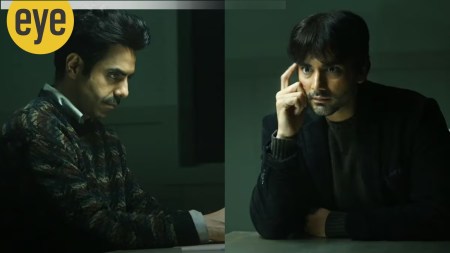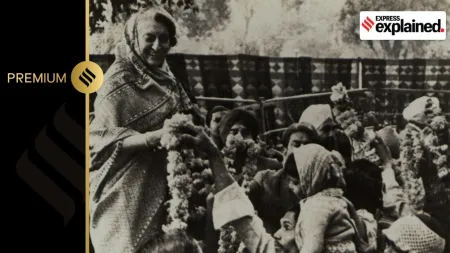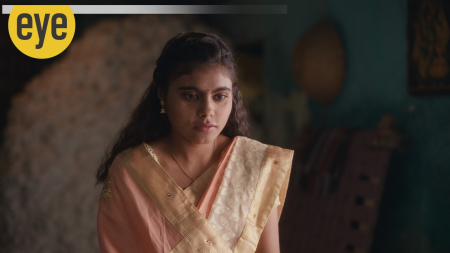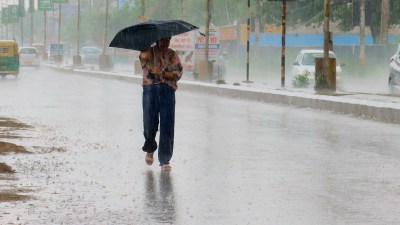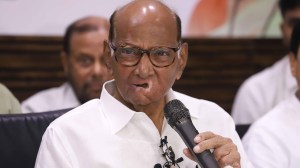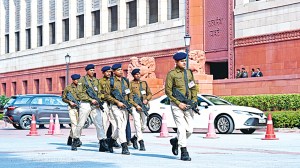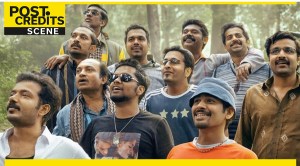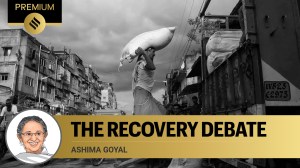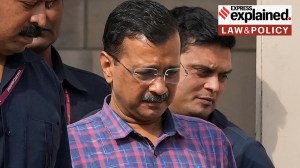- India
- International
‘Love jihad’ laws only codify decades-old judicial pronouncements in a law
Why, one wonders, do courts get into what seems to essentially be freedom of religion protected by the Constitution under Article 25? The answer is simple — beyond the romanticism of this fundamental right is the question of far-reaching legal consequences arising from one’s religious status.
 Given credence by the courts and police in some states, “love jihad” is seen as a strategy by Muslim fundamentalists to lure Hindu and Christian girls into their fold, thus swelling their numbers in an ongoing demographic war.
Given credence by the courts and police in some states, “love jihad” is seen as a strategy by Muslim fundamentalists to lure Hindu and Christian girls into their fold, thus swelling their numbers in an ongoing demographic war.A spate of recent announcements by state governments — all led by the BJP — in regard to their intent to enact legislation prohibiting, among other things, conversions merely for the purposes of marriage have raised quite a political storm. The Congress party is up in arms, calling it an affront to the idea of a syncretic India.
Except, however, it is the same Congress party whose MLAs in Himachal Pradesh, just a year ago, unanimously voted for The Himachal Pradesh Freedom of Religion Act 2019 — a rather strong “love jihad” law which not only prohibits conversion done for marriage, but makes it a cognizable and non-bailable offence.
The politics surrounding it gives rise to belligerence on one side and hypocrisy on the other. Resultantly, myths emerge which replace factual analysis.
These laws do not criminalise interfaith marriages. You will not find Muslim men suddenly being imprisoned for marrying Hindu women. The Special Marriage Act, a secular law enabling marriages outside the purview of religious laws, very much continues to exist.
Read | Opinion: Long and deceitful history of the ‘love jihad’ bogey

Indeed, it does not entail religious conversion prior to marriage. If that is the goal, it is not the BJP, but constitutional courts across India which have put restrictions on it. And while the BJP has put forth a fierce political stand, replete with rhetoric, all it has effectively done in terms of execution is to codify decades-old judicial pronouncements in a law.
In the popular Lily Thomas v Union of India case of 2000, the Supreme Court voided a marriage undertaken by a man who had converted to Islam merely to enter into a second marriage, scathingly remarking, that if a person feigned to have adopted another religion just for worldly gain or benefit, it amounted to “religious bigotry”.
Also Read | In name of conversion, UP love jihad law targets inter-faith unions
The Allahabad High Court issued many judgments including one laid down a few months ago where it regarded conversions merely for marriage as having the effect of invalidating the marriage. Interestingly, the Akhilesh Yadav government’s lawyers took a stand in a 2014 case that conversion merely for marriage was not permissible as this was neither valid religious conversion nor valid nikah (marriage). The Calcutta High Court has called conversion merely for marriage as a fraud upon the law.
The Uttarakhand High Court, in a 2017 case, made a recommendation to the state government to legislate because it had come across instances that, in its words, were “sham conversions only to facilitate the process of marriage”. The BJP government in Uttarakhand promptly followed it up with the Uttarakhand Freedom of Religion Act, 2018.
Why, one wonders, do courts get into what seems to essentially be freedom of religion protected by the Constitution under Article 25? The answer is simple — beyond the romanticism of this fundamental right is the question of far-reaching legal consequences arising from one’s religious status. Rights in regard to property, inheritance and under personal laws are all impacted. Conversion, courts have hence held, cannot be treated casually. It requires a bona fide intent to convert to another faith accompanied by conduct unequivocally expressing that intent.
Must read | UP law sees first case: Kin of 20-year-old move against Muslim friend
Moreover, that same Article 25 also guarantees freedom of conscience which, in a landmark Rev. Stainislaus case in 1977, was expounded by the Supreme Court to mean that there is no fundamental right to convert a person. If a person purposely undertakes the conversion of another person to his religion, that, the apex court went on to state, would impinge on that person’s freedom of conscience guaranteed to all citizens precisely to prevent any degree of compulsion in matters of belief — what the “love jihad” laws seek to prohibit.
Moreover, Article 25 starts with these words — “subject to public order”. Anti-conversion laws in Madhya Pradesh and Odisha have been held to be constitutionally valid by the Supreme Court as they seek to prohibit conversion in a manner “reprehensible to the conscience of the community” for the sake of public order. The reasoning is clear — if forcible or fraudulent conversions are not prohibited by law, that, the Supreme Court opined, could create public disorder.
The state assemblies, therefore, very much have the constitutional authority to enact laws in this regard. Indeed, whether or not the state should do so, and to what extent, is a policy matter which can and must be debated with data, evidence and trends in the appropriate state. An argument in favour of these laws can be made that, while courts have long voided marriages where conversions occur merely for marriage, such conversions not only continue, but take a horrific turn in many situations, thereby creating public disorder which, in turn, warrants a strong deterrence — which is the predominant purpose of criminal law.
A blanket position, however, that such laws cannot at all be enacted at all is a fact-free one.
The writer is a lawyer
EXPRESS OPINION
More Explained
May 11: Latest News
- 01
- 02
- 03
- 04
- 05


